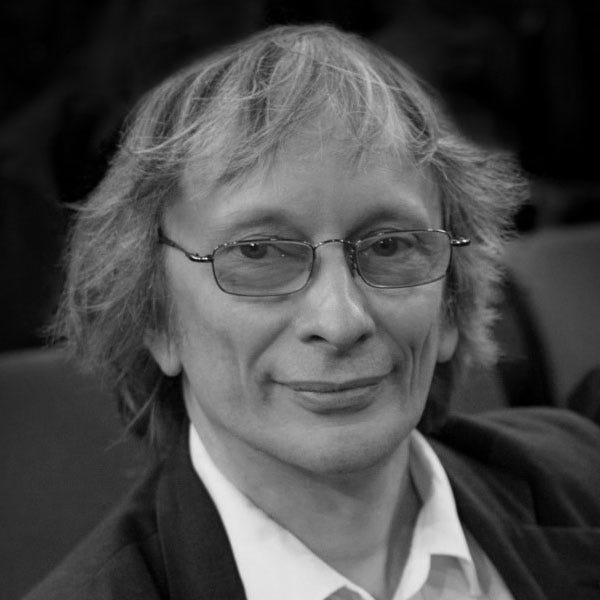Fabric of explanations and progress
David Deutsch saga
NOTE: this is the second post of a saga I’m doing related with the work of the physicist David Deutsch, this saga isn’t to quote david on these topics, it’s to provide simple and practical understanding of these amazing topics! All that I’m writing is my opinion, but my opinion on these topics is truly shaped by David’s opinion on these topics!
Explanations are a big big part of the philosophy of David Deutsch, it’s one of his original contributions and also served to empower Karl Popper’s ideas. Deutsch explains what explanations are and how important they are in the very beginning of “the beginning of infinity” in chapter one (the reach of explanations). Good explanations are what drives progress, since the ancient times that humans had the aspiration to progress, as much as we do now, they wished they could know how to have a stable food supply or how to sleep without risking starvation like we know today. And during the great majority of humanity, basically any significant progress happened, humans didn’t knew how to do progress. The major breakthroughs of our civilisation happened so rarely that it was almost insignificant comparing with an individual life, of course that the society we live today is a result from an accumulation of innovations and discoveries by humans that lived in the past. Literally what’s driving progress is cultural evolution, humans are special like Deutsch says (he’s actually one of the few intellectuals and physicist that defends this “philosophy”, Stephen Hawking for instance referred to humans as “chemical scum”), the human species has an unique ability of inherent features and knowledge from other humans besides the typical genetic transmission that is basically only what others animals inherit from their ancestors. For animals to make any progress they would need to need to have slightly genetic changes in order to at least change their behaviour. Lots of places on earth nowadays (maybe most of them) would be totally impossible to live there, it’s the accumulation of our knowledge and innovation (like clothes, technologies like air conditioning, the knowledge of how to build a house, etc) that allows the humans to being able to live in literally any place on earth. With the right knowledge, humans can achieve anything and not even the stars are the limit! The only difference between an hospitable and friendly environment and an death trap environment is the knowledge that humans created. Our support life system was created by us, not for us, I mean of course that the earth gave us the sufficient resources for us to flourish but that’s the fundamental difference between humans and any other species on the planet, all other species live with what earth gave them and it seems impossible for them to live any other way or even creating knowledge that would take progress to happen. This is why I said that “not even the stars are the limit”, as long as the laws of physics aren’t challenged, humans can expand to everywhere and transform an “death trap environment” in a “ hospitable and friendly environment”. We are, as David points out “universal constructors”. As I wrote in my first blogpost of this saga, progress depended on learning how to reject authority. If no one had challenged authority throughout the history of humanity we wouldn’t have evolved and we would be stuck, this is what makes the enlightenment period so special, most of the humankind was marked by anti rational memes (as I pointed out on my first blogpost of the saga again), this means that the ideas that circulated in the people minds were transmitted trough the disabling of the creative thinking and criticism, so even when people had ideas outside of the box (creative) there mind would just suppress themselves. Progress comes from the growth of knowledge and of wealth. Disobedience is the source of both of those things, it’s also very interesting and ironic at the same time, that if we look back in time to the biggest atrocities committed by humans (slavery, genocides, wars, etc) all those events were originated from obedience, not disobedience:
The enlightenment was so important and significant because people stop seeking authority and their motto, was in fact “take no one’s word for it”. We see a lot of institutions nowadays (more in the west) that follow the values of enlightenment, such as criticism. Institutions like the free markets or democratic institutions they had the ability of grip off the anti rational memes. As the amazing Arjun Khemani said “Before the Enlightenment era of the 17th and 18th centuries, people thought everything important and knowable was already known, enshrined in the unquestionable authority of ancient writings, institutions, and cultural traditions. While these all had bits of useful knowledge, that knowledge was bound up with many falsehoods. But because they were enforced as dogmas—much like the memes of ancient Sparta—the knowledge contained in them could not be improved upon, and their many falsehoods carried over from father to son”. Anyways, I’m getting a little of topics, what’s important to notice about explanations are the good explanations. Good explanations are hard to vary (they account for what was proposed to be accounting for while still serving its purpose), from this view, any explanation that involves god or magic or something like that, it’s considered a bad explanation. Like Popper said, “all life is problem solving”, we will never run out of problems. The deeper an explanation is, the more new problems it creates. No utopia is possible according to Deutsch because there’s no such thing as an ultimate explanation, we must keep testing our theories and correct our mistakes in order to move close to the truth or reality. We shall always be at the beginning of infinity. The scientific revolution was the beginning of good explanations (science was one of the fields that lost its grip with anti rational memes), and good explanations and deep explanations come always with more problems, but all problems are solvable given the right knowledge (if they aren’t against the laws of physics). “The best thing that can happen to a human being us to find a problem, to fall in love with that problem, and to live trying to solve that problem, unless another problem even more lovable appears” quoting Karl Popper. It doesn’t really matter if we solve the problem, we just need to make sure we have fun (Deutsch’s fun criteria), if we look at a problem with the intention of getting something out of there (maliciously) we will always end up miserable. It’s like the stories of kids who go to competitions with the goal of winning or something, even if they win they’ll eventually end up miserable. Here’s my first blogpost of this saga and my conversation with David Deutsch!
Creative rebellion
NOTE: this is the first post of a saga I’m doing related with the work of the physicist David Deutsch, this saga isn’t to quote david on these topics, it’s to provide simple and practical understanding of these amazing topics! All that I’m writing is my opinion, but my opinion on these topics is truly shaped by David’s opinion on these topics!
#20 - David Deutsch: the fabric of explanations, optimism and creativity
David Deutsch is a physicist at the University of Oxford, widely considered one of the most profound thinkers alive today. He’s the author of The Beginning of Infinity and The Fabric of Reality, and a pioneer of quantum computing and Popperian epistemology,




